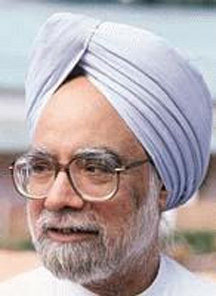NEW DELHI, (Reuters) – India’s Central Bureau of Investigation is probing possible corruption in the sale of coal concessions to private companies, it said yesterday, as the affair dubbed “coalgate” caused uproar in parliament, paralysing it for a second day in a row.

The CBI is investigating suspected collusion between state officials and private companies in underpriced sales of coalfields that the state auditor said last week may have cost the exchequer as much as $33 billion in lost revenues.
The agency would not say whether it had uncovered any irregularities, but both its investigation and the state auditor’s report will likely raise fresh questions about “crony capitalism” as well as the government’s involvement in the deeply troubled coal sector.
Asia’s third-largest economy relies on coal for two-thirds of its power generation but despite having one of the world’s largest proven coal reserves there is a growing gap between demand and supply, which critics blame on state-run Coal India’s failure to boost output.
There were rowdy scenes in both houses of parliament as opposition lawmakers, shouting and shaking their fists, demanded the resignation of Prime Minister Manmohan Singh, who was coal minister between 2006-2009, when many of the sales occurred.
Singh has vehemently denied any wrongdoing and vowed to resign if it is proven that he acted inappropriately as coal minister, but opposition parties are keen to exploit the affair, especially with a series of state elections due in the next few months and general elections due by 2014.
The furore has grabbed newspaper headlines and dominated cable news channels, overshadowing the government’s attempts to persuade voters and foreign investors that it is serious about getting the economy back on track. India is suffering a severe economic slowdown that economists have partly blamed on the government fumbling management of the economy.
The chaos in parliament may force the government to postpone voting until next week on a key banking reform that would allow private investors more clout in a long-restricted sector.
The opposition parties’ strategy appears calculated to keep Singh’s government on a back foot and fuel voter disenchantment over a series of corruption scandals that could cost his Congress party dearly in the coming elections.
OPPOSITION TO KEEP
PRESSURE ON
“We will stick to our demand until the prime minister goes,” said Prakash Javadekar, a leader of the main opposition party, the Bharatiya Janata Party. “He is morally responsible.”
Singh, who is close to Congress party leader Sonia Gandhi, is not expected to resign. While his government has been hurt by corruption allegations, the quietly spoken former economist has a reputation for integrity.
The CBI said it would submit its report to the government’s anti-graft body, the Central Vigilance Commission, by Sept. 1.
A CBI official, who declined to be named, said investigators had travelled to more than 50 locations throughout the country and pored over hundreds of government documents, looking for irregularities involving more than a dozen private and public companies that bought coal blocks between 2005 and 2009.
“The agency is inquiring into possible collusion between private companies and public servants,” the official said.
One focus of the agency’s investigation is whether the companies that bought the coalfields did so with the intention of mining them or reselling them at a profit.








